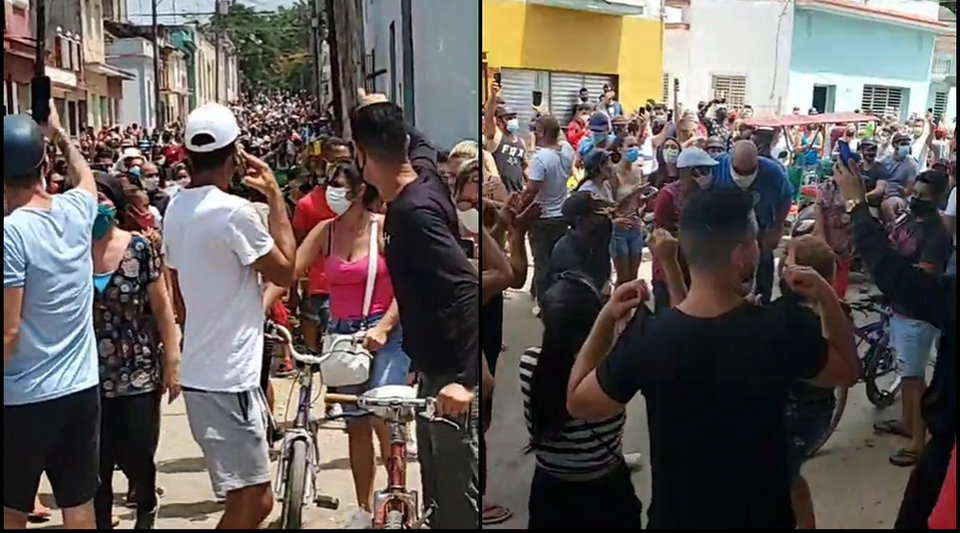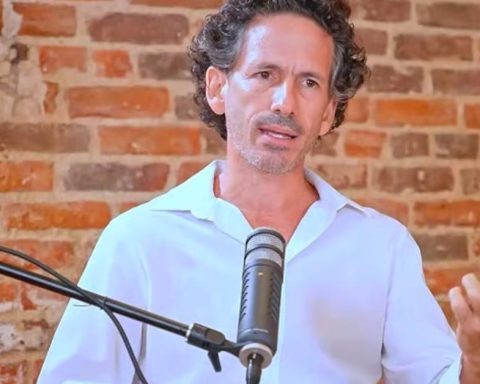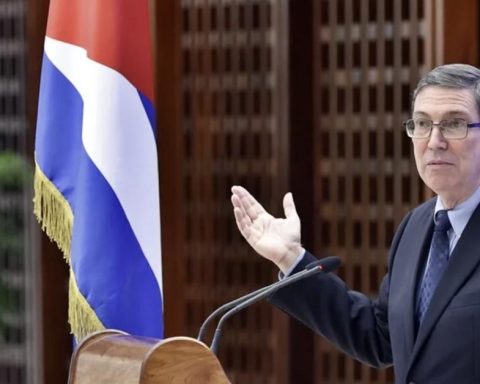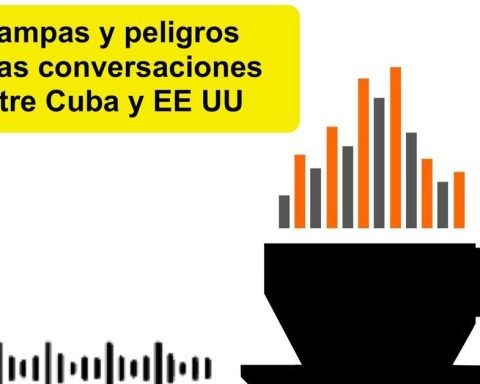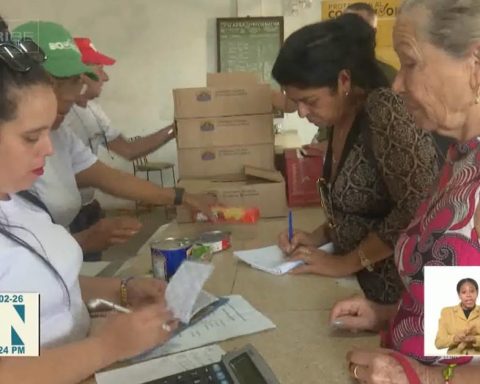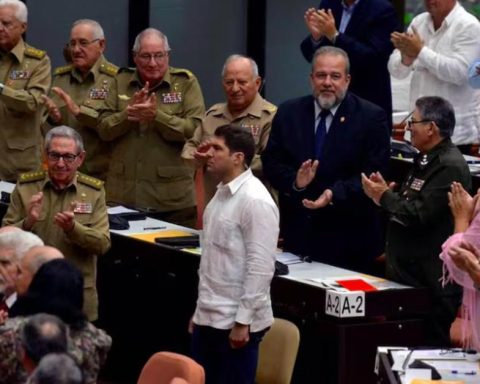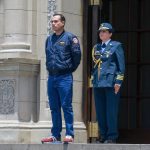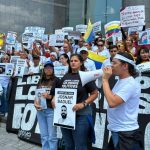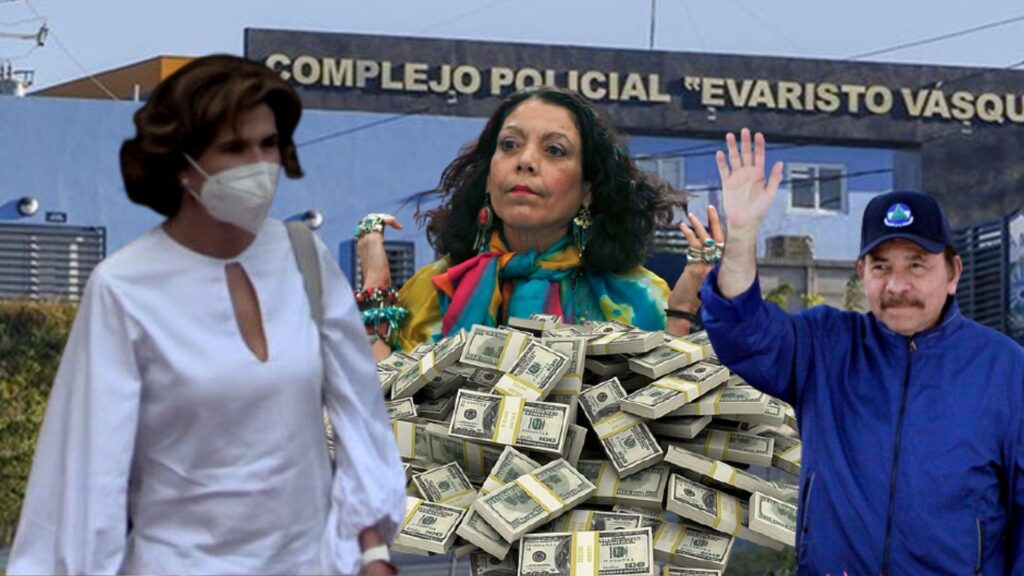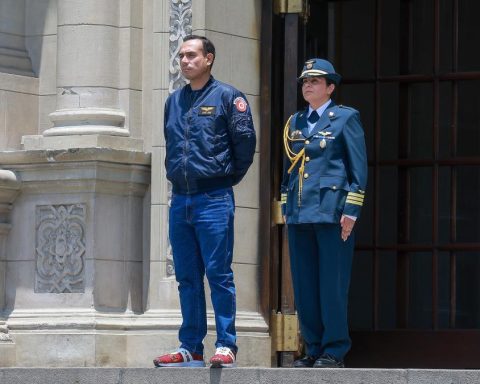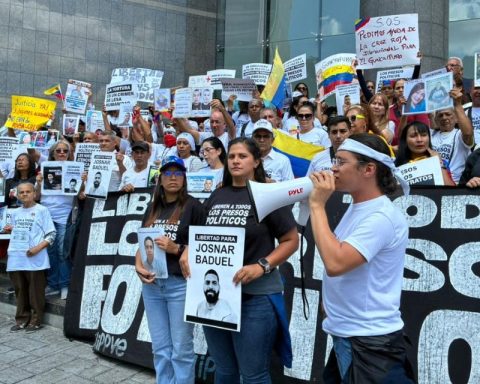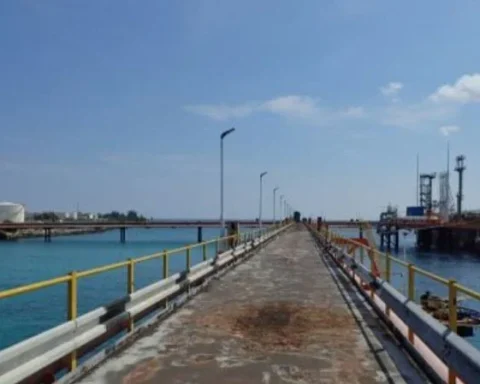The 17 protesters from San Antonio de los Baños who participated in the July 11 protests in the town of Artemisa, where the biggest social unrest in Cuba began in decades, have been sentenced to between 10 and 3 years in prison.
The sentence, dated March 15, was notified this Tuesday by the Municipal Court to the defendants, who were accused of the crimes of attack, contempt and public disorder. All of them were found guilty, although the sentences are lower than the very high ones that were known last week in Havana, since none of those included in this file weighed the accusation of sedition.
All of them were found guilty, although the sentences are lower than the very high ones that were known last week in Havana, since none of those included in this file weighed the accusation of sedition.
Ariel Pérez Montesino is the most affected, with a sentence of 10 years in prison for two crimes of contempt and one of public disorder. Miguel Díaz Sosa and Rolando Yusef Pérez Morera received 8 years in prison and Christian Reyes Pérez, 7.
The bulk is made up of those sentenced to six years, a group that includes Yoan de La Cruz, who recorded and broadcast the protests and whose sentence was known this Tuesday through his mother. Carlos Manuel Pupo Rodríguez, Denys Hernández Ramírez, Rosa Jany Millo Espinosa and Rolando López Rodríguez received the same sanction.
Julián Manuel Mazola Beltrán, Omar Hernández Calzadilla, Yoel Díaz Hernández and Yordan Esteban Brook Amador were sentenced to five years; while Miguel Díaz Zaldívar, Osdany Antonio Ricardo Aguilar and Yunier Claro La Guardia received four years in prison. The “best unemployed” was Adrián Rodríguez Morera, with 3 years.
All of them, in addition, are prohibited from leaving the country and renewing their passport and have lost the right to active and passive suffrage for a period ranging from four to ten years.
The sentence considers it proven that at 11 in the morning of July 11, people “incited by social networks” began to congregate in the Park of the Church of San Antonio de los Baños, among them the 17 defendants, who were protesting for lack of electricity and medicines “without taking into account”, says the text, the context of the pandemic and the US “blockade”. One of the defendants, Denys, carried “a speaker with music and played the song over and over again Homeland and Life“.
One of the defendants, Denys, carried “a speaker with music and played the song ‘Patria y Vida’ over and over again”
The sentence mentions some of the words that were heard in the march against the authorities. “Díaz-Canel singao”, “Assassin”, “Let the police come if he wants anything” or “cock police”. According to the text, the protesters had been chanting “expletives” for a long time when an official appeared to talk, to which several of the accused responded by asking her to shut up or calling her a liar, among other insults.
The text highlights that Christian Reyes recorded the protests and Yoan de la Cruz broadcast them live “which caused such acts to be viewed inside and outside the country and that the harmful actions were imitated in different municipalities and provinces.” According to the text, the young man received encouragement from abroad and phone recharges so that he could continue broadcasting.
The story continues reviewing common facts of any protest, such as the demonstrators chanting phrases against the Government or encouraging others up on a wall to join, knocking on some doors to gather support from the population.
Another of the “serious facts” highlighted in the sentence is having walked by and pointed to “the gigantography of the leader of the Cuban Revolution Fidel Castro Ruz and of Army General Raúl Castro Ruz” and, standing before the crowd, shouting: “down the Castros, Diaz-Canel”.
They passed by and pointed to “the gigantography of the leader of the Cuban Revolution Fidel Castro Ruz and Army General Raúl Castro Ruz” and, standing before the crowd, shouted: “Down with the Castros, Díaz-Canel”
Apparently, the fact that they approached the police headquarters shouting or “in a defiant posture” are also possible acts constituting a crime, such as having stopped traffic and provocatively harangued the crowd.
The ruling also reviews one by one the employment relationship, if any, of the defendants, some of whom are accused of having fines for “illicit business” or administrative records. It also entertains itself in giving an account of whether the accused enjoyed “prestige” in the area in which they live or were surrounded by “people of social and moral misconduct.”
Ariel Pérez Montesino, 48, is the only one with a criminal record and was on parole in July, when he had two years left to serve a 20-year sentence for murder. His mother, Berta Montesino Amaro, has claimed his innocence in this case and considers the punishment excessive, since her son “did not attack, hit, or throw a stone.”
________________________
Collaborate with our work:
The team of 14ymedio is committed to doing serious journalism that reflects the reality of deep Cuba. Thank you for joining us on this long road. We invite you to continue supporting us, but this time becoming a member of our journal. Together we can continue transforming journalism in Cuba.
